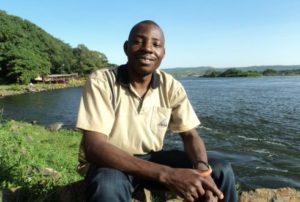by Amos Ochieng
The question of whether or not to protect wildlife or domestic animals remains unanswered for many African countries. In Uganda for example, several attempts have been made to conserve wildlife especially on private land, around Lake Mburo National Park. To do this, the government through the Uganda Wildlife Authority (UWA), reintroduced sport hunting in 2001 to bring both financial and material benefits to the communities.
This was after the UWA licensed Game Trails Uganda Limited (GTL)- a private sport hunting company who does the marketing and brings the clients/tourists (sport hunters) who pay money to hunt different species of animals of their choice, but that have been approved and listed by UWA for sport hunting. The proceeds are then shared with the communities, as a way to motivate the communities to conserve wild animals on their land, and also to compensate them for the losses that they incur such crop loss, competition for grazing space and water between wild animals and cattle.
During my fieldwork, I discovered that the proceeds from sport hunting is being used by the communities to contribute positively in terms of development. The communities, through their Community Wildlife Association (CWA) have used their share of the money to do community projects such as schools, health centres, community roads etc.
Although there are signs of positive development out of using sport hunting revenue, there are still critical concerns from the communities, conservation organisations and even tourism organisations in Uganda. They remain pessimistic as to whether sport hunting is an effective approach to conserve wildlife outside of the national park boundaries in Uganda. This follows a sharp division among the community members over the years, on what amount of benefits they should be getting from sport hunting, and whether they should protect wildlife on private land to encourage sport hunting or rear domestic animals such as cattle and goats to improve their livelihoods.
During interviews, I was faced with parallel opinions about sport hunting from the communities. While some who are appreciative of the benefits registered from sport hunting and are in favour of the practice continuing, those against it, argue in favour of keeping large herds of cattle on their land for livelihoods improvement. Those against sport hunting have remained very pessimistic about it and claim they are not satisfied with the benefits that they get, compared to what they would have got from keeping cattle. This section of the community also claim that they find more prestige in rearing and owning large herds of cattle.
As a result, the large herds of cattle are becoming a big threat to the survival of wild animals, especially on private land around Park. The cattle compete with wild animals for grazing space and water. In fact, when you visit the communities around Lake Mburo National Park, you witness large herds of cattle grazing alongside wild animals on individual farms. This kind of wild-domestic animal interaction can potentially threaten the existence of either wildlife or domestic animals in various ways including spreading of ticks from either side. As a result, some community members are losing trust in sport hunting as an approach to conserve wildlife on private land.
In order to help UWA gain more community support for continued implementation of sport hunting around Lake Mburo National Park, some NGOs such as Africa Wildlife Foundation (AWF) together with the Uganda Community Tourism Association (UCOTA), with support from USAID, have started working with the communities around the Park to promote a Biodiversity programme, aimed at conserving the endangered wildlife on private land. It is also to ensure that more benefits go to individual households to improve their livelihoods, and to eventually appreciate the values of wildlife on private land. This is largely due to a realization that wildlife, left to compete with cattle on private land around LMNP will likely end in a “lose-win” battle, as opposed to the sought after conservation-development “win-win” scenario.

Amos Ochieng is a PhD Candidate (2012-2016), Cultural Geography group/Forest Nature Policy group of Wageningen University, The Netherlands





Leave a Reply